Whether you were in the audience or watched via Live Stream, we want to thank you for helping to make HDRF’s Symposium on Teens, Social Media and Mental Health last week a resounding success.
Is social media making teens depressed? We addressed this question with a panel of doctors, writers and young activists who shared their stories in a public forum on Tuesday, May 8 at the Paley Center for Media before an audience of over 125 people, including many NYC teens and their parents. Also in attendance were actors Justina Adorno, ABC’s Grand Hotel, Matt Flynn, FOX’s Gotham, Robert Manzell, Netflix’s Iron Fist, and Alyssa Kempinski, HBO’s the Deuce.
The panel offered remarkable insights and included Em Odesser, 17, Editor-in-Chief and Co-Creator of Teen Eye Magazine; writers Scarlett Curtis and Philip Eil; doctors Alexander Harris, MD, PhD; Marianne Chai, Medical Director, New York Center for Living; and UCLA’s Dr. Yalda T. Uhls, author of Media Moms and Digital Dads, A Fact Not Fear Approach to Parenting in the Digital Age. The moderator was Elyse Fox, founder of Sad Girls Club, and online and IRL forum for young people to talk about mental health openly.
| What we learned? |
The Alarming Studies and How to Understand Them
Over the past five years, depression rates have spiked in young people by 33 percent, and suicide rates in girls have jumped by 65%. Many experts say this alarming trend is linked to the rise of social media. Recent studies show that teens and young adult users who spend the most time on Facebook and other platforms have a substantially higher rate of reported depression (from 13 to 66 percent) than those who spend the least time.
However, it is important to understand the difference between causation and correlation. Is social media actually “causing” depression? Or are kids turning to social media because other factors and trends in society are making them depressed?
More research is needed to fully understand the effects of social media on mental health, the doctors on the panel said.
Social Media Can Distort and Create Community
The panel agreed that heavy use of social media can be harmful to self-esteem; case in point is the rise of the term “FOMO,” or “Fear of Missing Out.” Teens are especially susceptible to the feeling of being left out by their peers, and 24-7 social media can exacerbate this. “We should not judge our interiors by everybody else’s exteriors,” said Panelist Em Odesser, age 17.
However, social media can also be a lifeline to a sense of community when a teen feels bullied or isolated. Panelist Scarlett Curtis noted that when an illness kept her housebound, social media was her only source of friendship, community and career success. Odesser added, “If it wasn’t for social media, I would be far lonelier because in a community that I don’t always feel that comfortable in, I can text my best friends in other continents and feel better.”
Moderation and Parental Guidance is Key
Psychiatrist Dr. Marianne Chai urged the teens in the audience to check in with themselves and take ownership of their use of social media. Is something online making them feel upset? If they are experiencing negative emotions, they should skip social media for a few days and share their feelings with a trusted adult. They should also examine their reasons for signing back on to social media.
Parental guidance is also key. Adolescent brains are still developing which can lead to impetuous decisions and posts that can have lifelong consequences. Panelist Dr. Yalda Uhls said “We need to teach kids how to have a positive digital footprint.” She advised taking advantage of “ teachable moments” – a social media scandal in the news can be used to guide teens about their own online behavior. She added that every social post holds weight in this society and can have severe implications. “Parents need to be role models and have a positive digital citizenship” Uhls added.
The upshot?
All panelists agreed that social is media here to stay and in fact the platforms that teens use are constantly changing. Therefore, we must look at both the pros and the cons and learn to adapt the new technology to positive ends. Dr. Alex Harris advised parents, family, and friends to pay attention to any warning signs.
If you see an abrupt change, where a child or young adult is using social media a lot more than usual or a lot less than usual, then it is a good time to check in. It’s as basic as the Goldie Locks theory – is your child using social media too little or too much – it is up to the parents to help their child find what it just right!
Helpful Links:
Child and Adolescent Mental Health, National Institute of Mental Health: https://www.nimh.nih.gov/health/topics/child-and-adolescent-mental-health/index.shtmlBelow are useful resources that came out of the day offering quality information on adolescent brain development, mental health and media use:
- Common Sense Media: https://www.commonsensemedia.org/
- Adolescent Brain Cognitive Development Study: https://abcdstudy.org/index.html
- Teen Depression, NIMH: https://www.nimh.nih.gov/health/publications/teen-depression/index.shtml
- The Teen Brain: 6 Things to Know: https://www.nimh.nih.gov/health/publications/the-teen-brain-6-things-to-know/om-16-4307_153233.pdf
- The American Academy of Pediatrics just published their new technical guidelines on treating adolescent depression: https://www.healthychildren.org/English/news/Pages/AAP-Publishes-Teen-Depression-Guideliness.aspx
Helpful books:
- Media Moms Digital Dads, Yalda T. Uhls
- So You’ve Been Publically Shamed, John Ronson
- Screen Smart Parenting, Jodi Gold
- Raising Digital Natives, Devorah Heitner
Where to get help
- 911 – Some social media sites have a process to report suicidal content & get help. It’s still important to call 911 if someone is posting suicidal messages or something disturbing on social media
- TXT 4 HELP, Safe Place: http://www.nationalsafeplace.org/txt-4-help
- Suicide Prevention Life Line: http://www.suicidepreventionlifeline.org call: 1-800-273-8255 text: 741741
- 7 Cups: https://www.7cups.com/
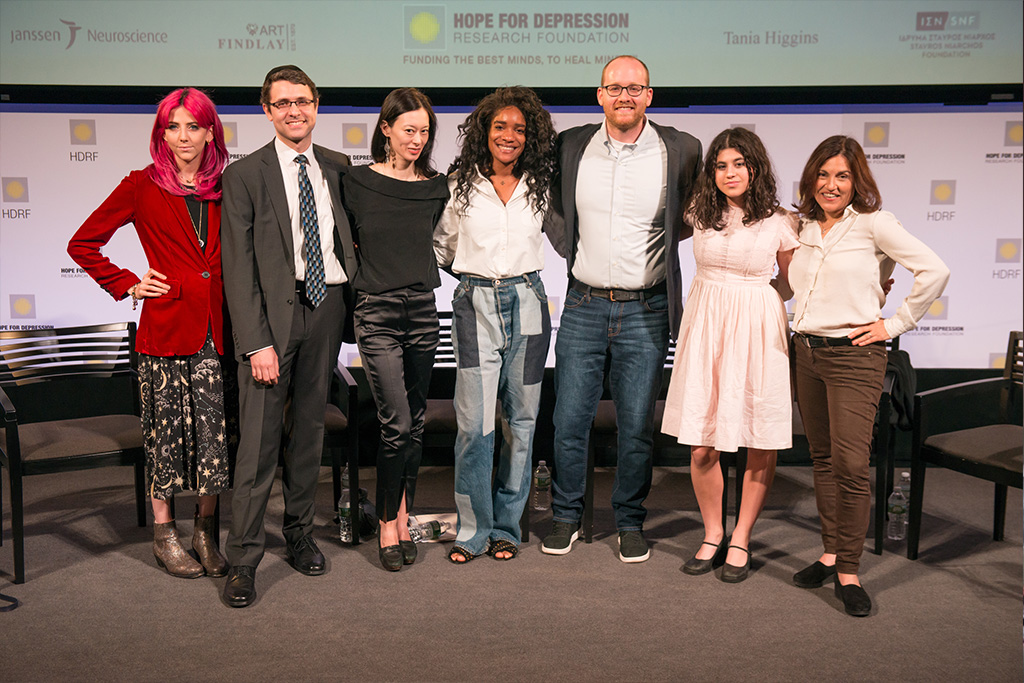
The panel of teens, doctors and journalists led the conversation.
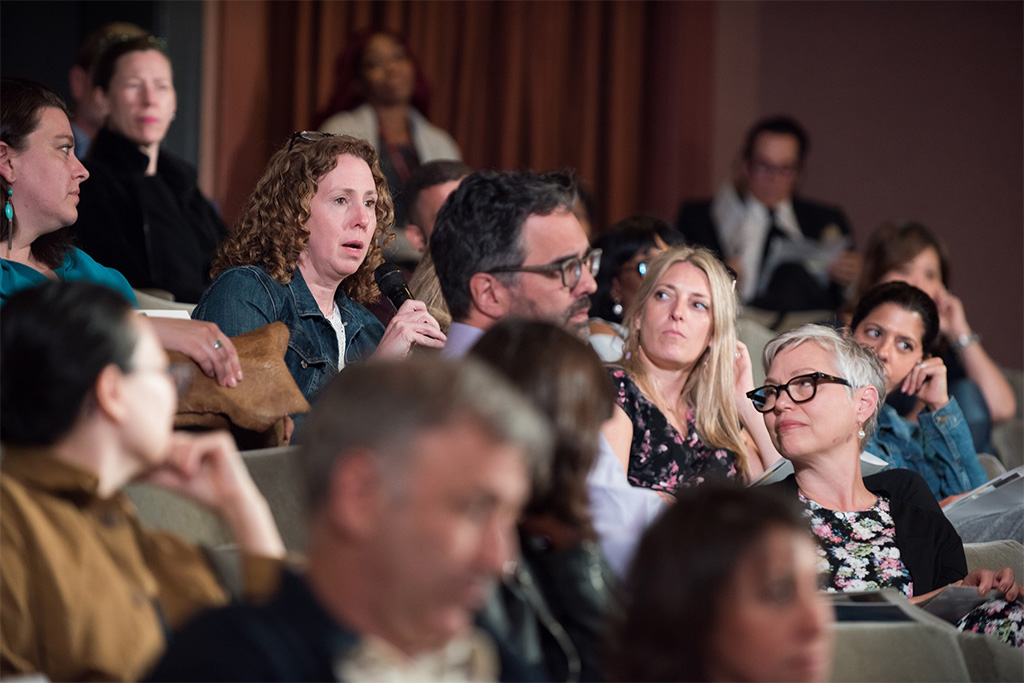
A concerned parent asking for tips on how to monitor their children’s social media usage.
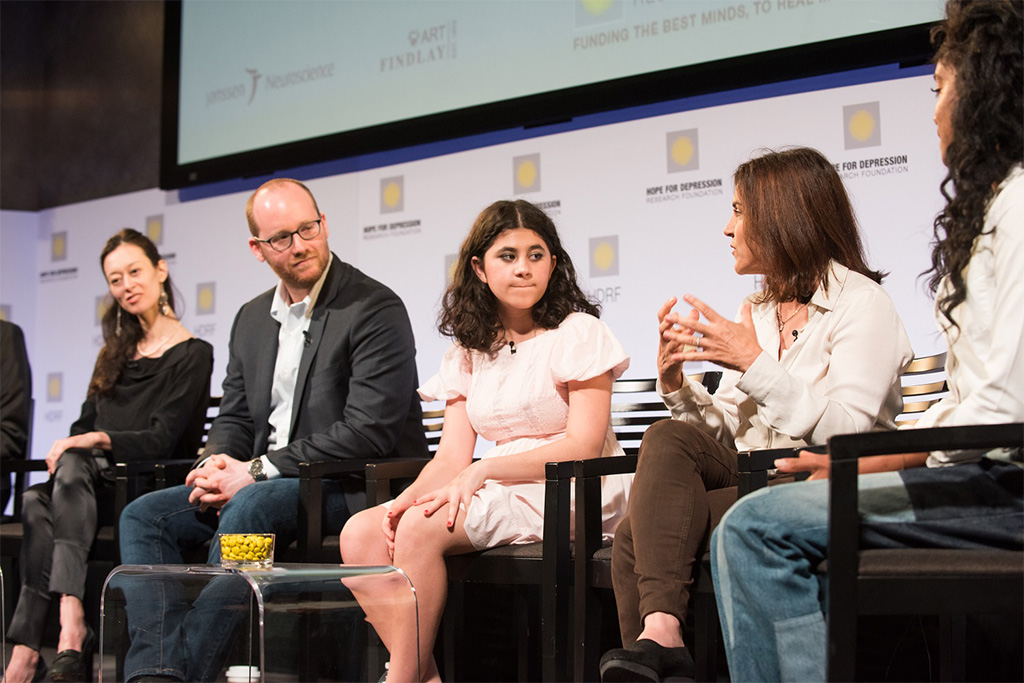
Dr. Yalda Uhls explaining how parents need to lead by example and be involved with their children’s social media usage.
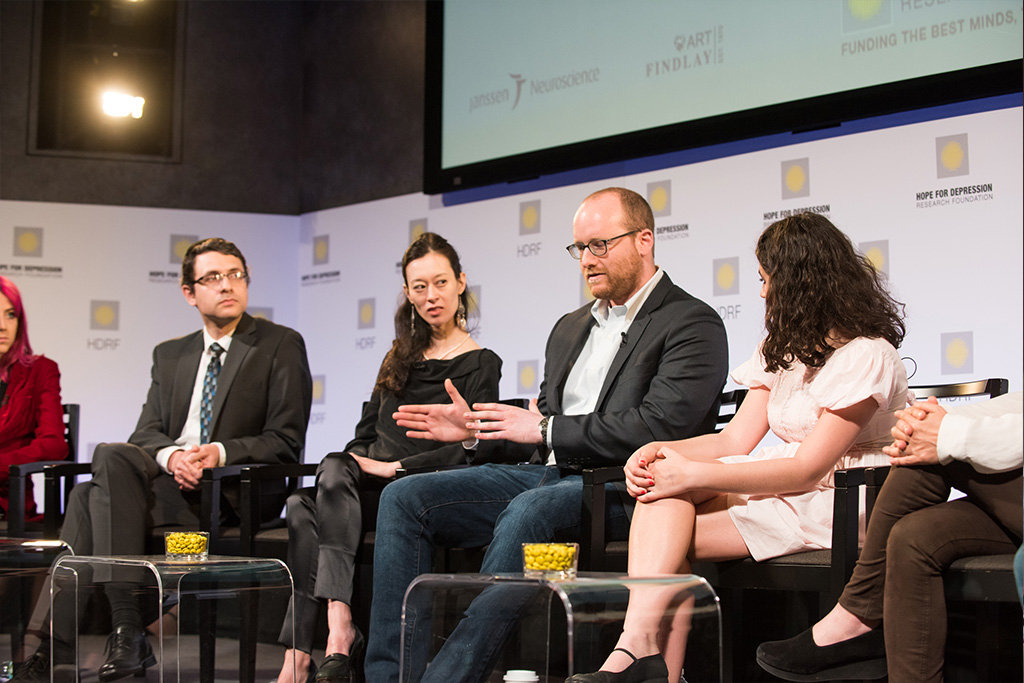
Philip Eil
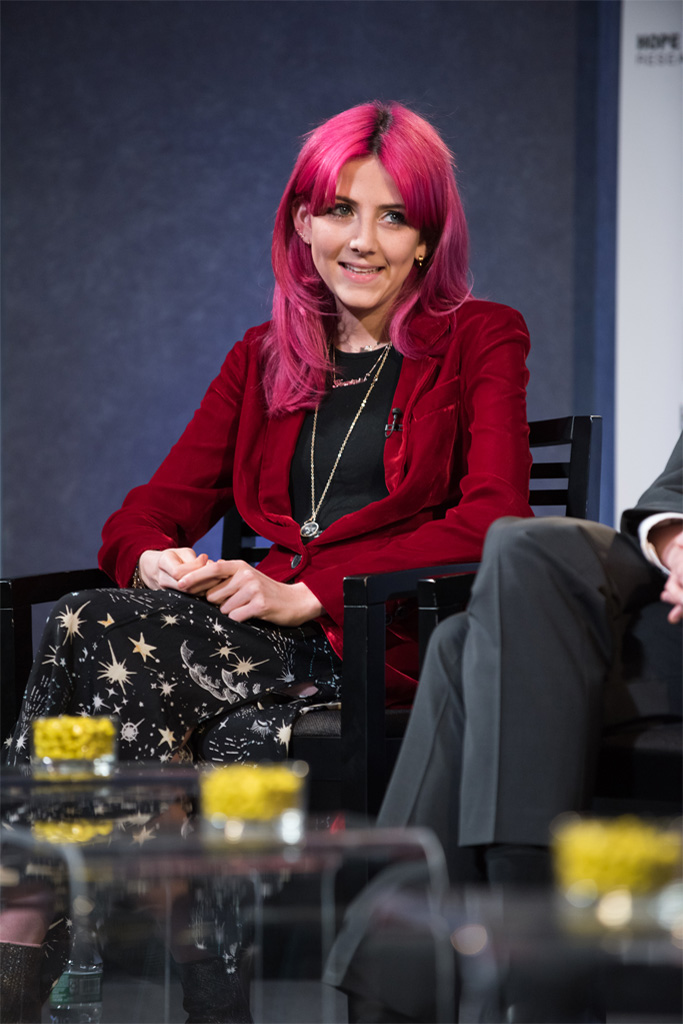
Scarlett Curtis

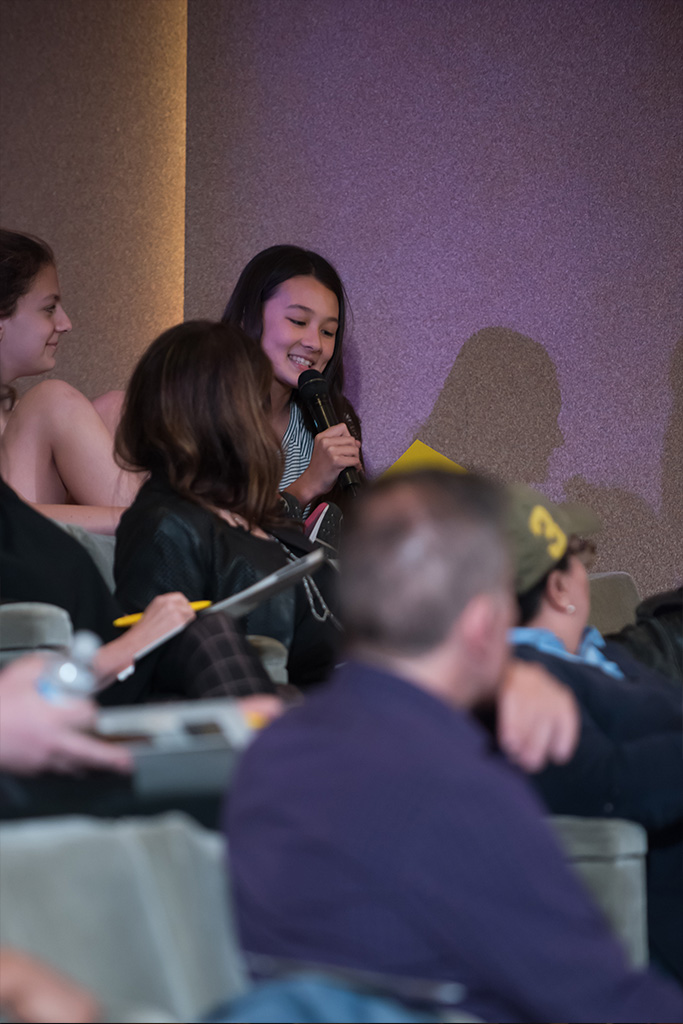
A seventh grader explaining how she feels about “likes”.
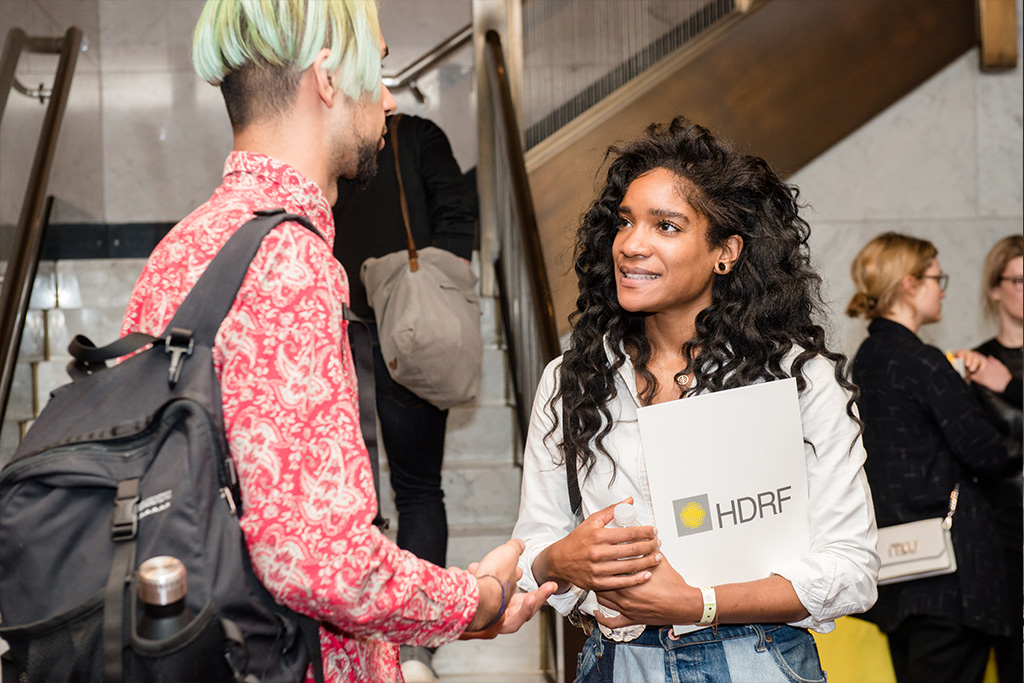
Elyse Fox talking with a teen on how social media helped her
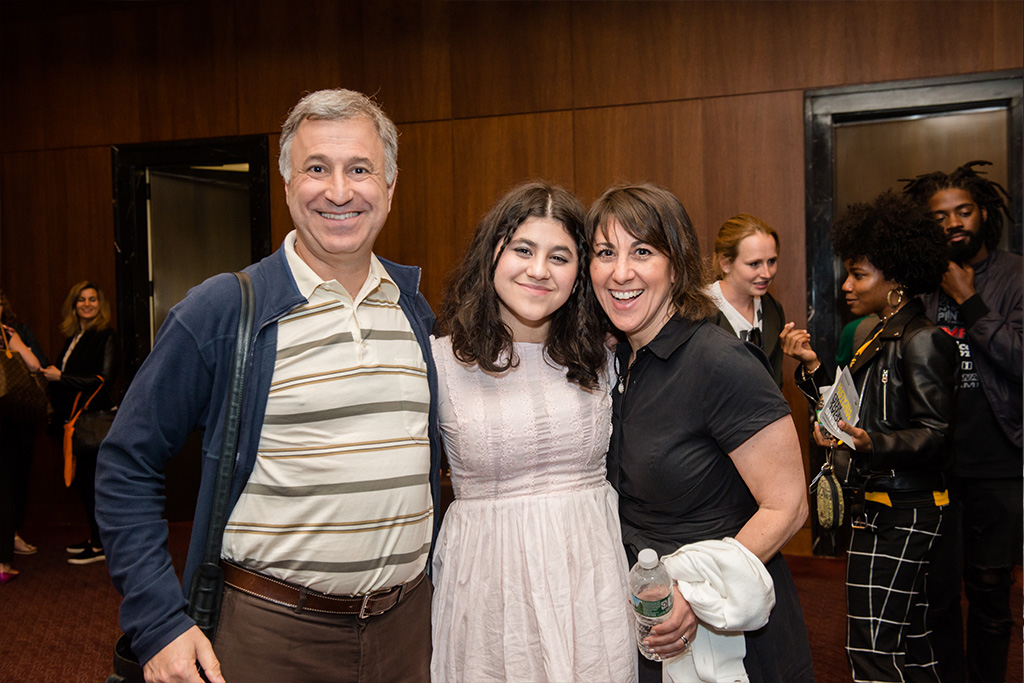
Em Odesser with her parents after the symposium
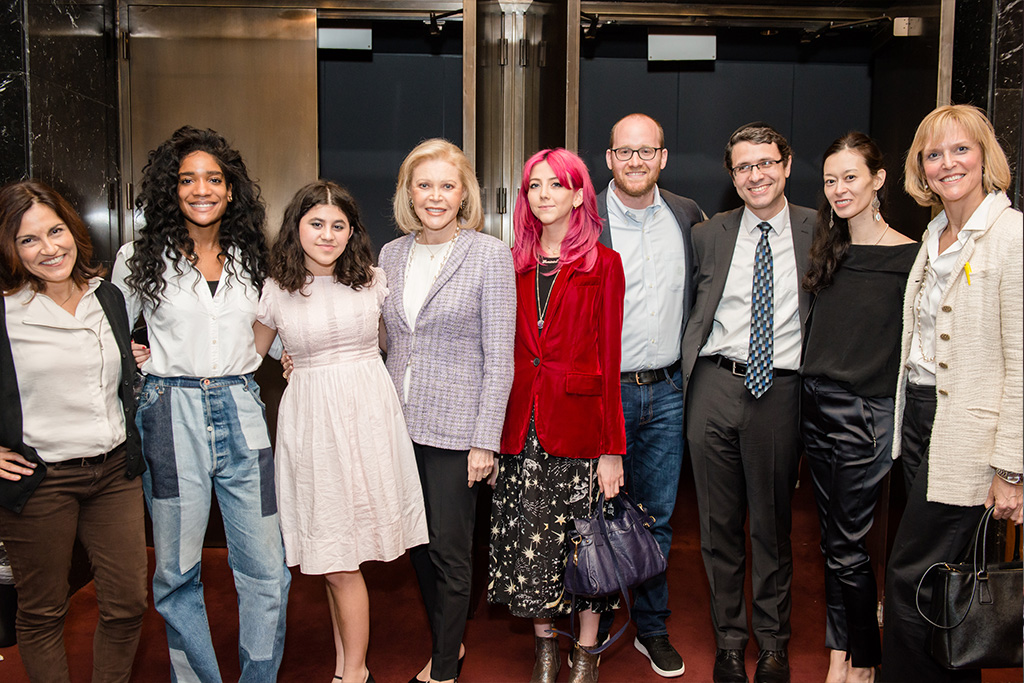
Dr. Yalda Uhls, Elyse Fox, Em Odesser, Audrey Gruss, Scarlett Curtis, Philip EIl, Dr. Alex Harris, Dr. Marianne Chai, Louisa Benton
